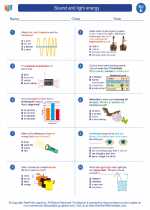Sound and light energy -> single-celled
Single-Celled Organisms
A single-celled organism is an organism that consists of only one cell. These organisms are also known as unicellular organisms. Despite being made up of just a single cell, they are able to carry out all the necessary functions of life, including obtaining and processing nutrients, excreting waste, and reproducing. Single-celled organisms can be found in various environments, including water, soil, and even inside the human body.
Types of Single-Celled Organisms
There are several types of single-celled organisms, each with its own unique characteristics:
- Bacteria: These are prokaryotic organisms that can be found in virtually every environment on Earth. Some bacteria are beneficial, while others can cause disease.
- Archaea: Similar to bacteria, archaea are also prokaryotic organisms, but they have distinct genetic and metabolic characteristics.
- Protists: This diverse group includes organisms such as amoebas, paramecia, and algae. Protists can be found in aquatic environments and moist habitats.
- Yeast: Yeast is a type of fungus that is commonly used in baking and brewing. It is also a single-celled organism.
Characteristics of Single-Celled Organisms
Despite their small size and simple structure, single-celled organisms exhibit a remarkable array of characteristics:
- Unicellular Structure: As the name suggests, these organisms consist of only one cell, which carries out all life functions.
- Prokaryotic or Eukaryotic: Single-celled organisms can be either prokaryotic (lacking a true nucleus) or eukaryotic (possessing a true nucleus).
- Movement: Some single-celled organisms are capable of movement using structures such as flagella, cilia, or pseudopodia.
- Nutrition: They obtain nutrients through processes such as photosynthesis, ingestion, or absorption.
- Reproduction: Single-celled organisms reproduce asexually through processes such as binary fission, budding, or spore formation.
Study Guide
Here are some key points to remember when studying single-celled organisms:
- Define the term "single-celled organism" and provide examples of different types of single-celled organisms.
- Explain the characteristics of single-celled organisms, including their structure, movement, nutrition, and reproduction methods.
- Compare and contrast prokaryotic and eukaryotic single-celled organisms.
- Discuss the ecological roles of single-celled organisms and their importance in various ecosystems.
- Explore the impact of single-celled organisms on human health, both beneficial and harmful.
Understanding single-celled organisms is essential for comprehending the diversity of life on Earth and their impact on the environment and human society.
[Single-celled] Related Worksheets and Study Guides:
.◂Science Worksheets and Study Guides Fifth Grade. Sound and light energy

 Activity Lesson
Activity Lesson
 Worksheet/Answer key
Worksheet/Answer key
 Worksheet/Answer key
Worksheet/Answer key
 Worksheet/Answer key
Worksheet/Answer key
 Worksheet/Answer key
Worksheet/Answer key
 Vocabulary/Answer key
Vocabulary/Answer key
 Vocabulary/Answer key
Vocabulary/Answer key
